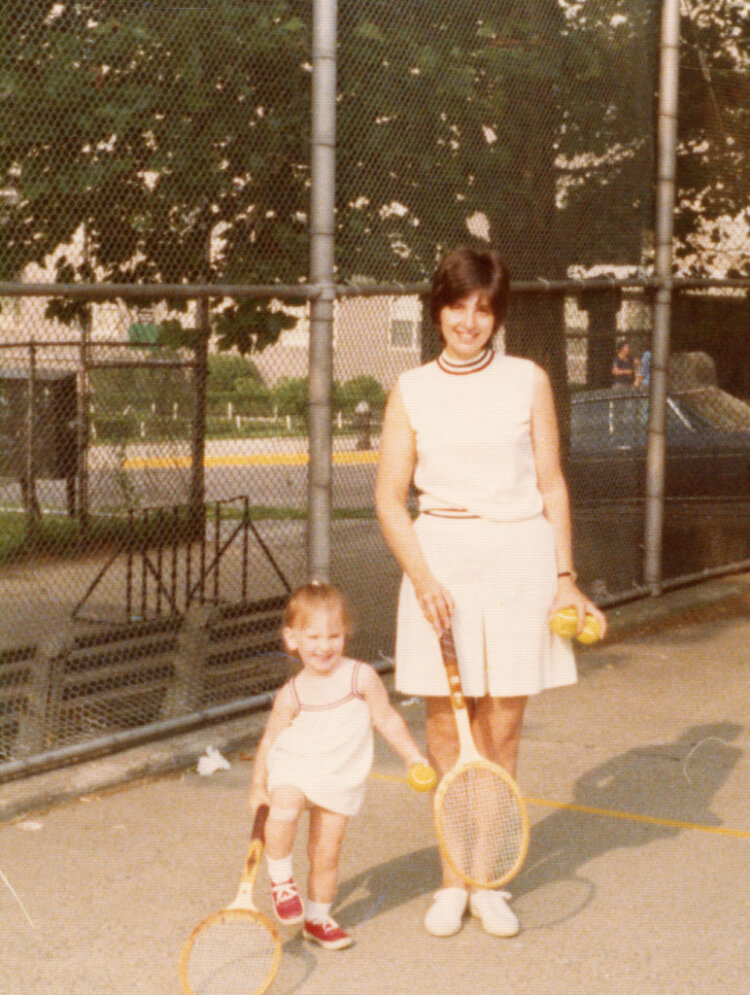
As the lemon-syrup flavored seltzer escaped its glass in a freedom burst of effervescent bubbles and shards of glass, baptizing my 2010 MacBook Pro, I knew it was my fault. Not just for having thirst, for pouring a glass of a homemade beverage into a stemless wine glass to feel a little more fancy during a downward facing day, but because this is the week when I shouldn’t put anything I care about in harm’s way. While it’s too early to see what the lasting impact of this refreshing bath has been on my computer, I should have known better. This is the week of the year that things get lost: last year it was my cellphone, which dropped from my pocket on the street; six years ago, it was my mother, after a long illness.
Those things aren’t the same, of course: I can get a new phone every two years, and I’m pretty sure that no matter what network I’m on, a “can you hear me now?” aimed at my mother will go unresponded to. But this is what May is like for me. From the first day of the month that – in places where there are actually seasons – heralds spring, my mother’s birthday, the countdown to remembering the loss begins. There’s the Hebrew anniversary of her death – known as the yahrzeit – on which I go to three consecutive prayer services to recite the Kaddish, each time returning home to the glow of a Yahrzeit candle on the table, illuminating the apartment with a bit of extra light during a bit of a dark moment. There’s the English anniversary of her death, May 14 on the Gregorian calendar, which is the same every year, marking another year without her wise, even if sometimes-critical, voice. And if the May 14th date sounds familiar to you this year, it’s probably because it’s today and you have plans for Mother’s Day.
Two years into my loss, I said that I felt like a sophomore at Loss University. Now that she’s six years gone, it’s clear that I’m doing some sort of post-doc fellowship in loss, always learning, writing long papers that may or may not be published. And even if they are, this isn’t really a doctoral program. There’s no PhD for me at the end because there isn’t really an end. There are moments of achievement, that feel like they might be closure, but then they’re not.
I try to stay positive. And there’s lots to stay positive about. I have colleagues who honor my work and talent. I have a spacious apartment that is often filled with friends who appreciate the strange sense of humor I bring to writing, life and social media. This week, I made challah alone for the first time – my mother’s recipe that she warned me not to make because she was afraid it would take over my life.
While some moments are light and hopeful, many more start off that way, born in optimism before slowly darkening with a grief I thought had receded. I’ve written something, I feel triumphant, and really want to show it to my mom. I’m challenged by the loss of a friendship or business opportunity and know my mom would have some good advice, even if it might be tough love. The moment reveals sadness with a flourish and a bow, come to collect me for the journey. And in that instant that showered me – and my computer and any nascent optimism – in seltzer and glass and metaphor, I had to stop fighting the current and succumb.
When I’m lucky, the despair departs for darker climes just as quickly as it had arrived, leaving me amazed at hope’s persistent feathers; they flutter wildly just trying to stay aloft, somehow managing even when the tangled wreckage below reaches up, attempting to snatch away any chance of redemption. It is hope that has taught me that in a week when everything seems to get lost, there are some things that are found.
The phone, for instance. Last year, it fell from my pocket or handbag or some other location. I thought it was lost forever. I posted on Facebook and enabled “FindMyPhone.” I traced it on my laptop and it seemed to be relatively close by. With the help of a friend, we tracked it down. It was random, with a local angel ushering the miracle into being. (Read the whole story here.)
As I write this, my laptop sits inverted, doing a relaxing Downward Facing Computer in a large container with a handful of silica gel packets I’ve been told might absorb any remaining moisture. I didn’t look at the machine for a few days; inside that container, it was Schroedinger’s Mac – both functional and dysfunctional, alive and something other than alive. But whatever the final prognosis is for this MacBook Pro, whether it is restored to me or lost forever, there is something to be found.
I rediscovered the gratitude that brought this computer my way to begin with – a collection from friends to bring me a tool to enable my writing work. I was grateful that during the dousing, I had a friend visiting who was able to help me stay centered in the task of cleanup instead of disintegrating into a panic. I was grateful for the shards of glass for lodging in that narrow void between screen and keyboard instead of slicing through my skin. I was grateful for the extra computer my brother had given me, that is enabling me to write this very piece right now. I am grateful for my creativity, which enables me to turn sorrow into a contemplative piece of writing, to turn my grief into observational humor that can reach across sadness into truth and evince a laugh from someone else who grieves. I am grateful for my ability to reach out to those who are living with similar loss and provide them with a space to share and remember. I am grateful for those who express appreciation for what I put into the world, and when I am too exhausted to keep producing, I am grateful for those who hold me up.
While writing this, I was typing words like “grateful” and “gratitude” a lot. I felt myself trying to embody those words, as if speaking them would will them into existence. But as sometimes happens, it did not. This has been a week in which I have felt more despair than hope, and trying to employ a hopeful tone and end this piece with a note that’s more uplifting is not succeeding; more disturbingly, it feels inauthentic. Hope is a thing in my life. But I don’t always feel it. And sometimes, I forget I ever felt it and feel like it may never return. If I’m being honest as a writer, I need to be honest about that as well.
There are people who turn to God in moments of grief, and sometimes, I am one of those people. But on most days – especially in May – while I might want to believe with absolute and perfect faith in an all-powerful entity, I am much more likely to believe in the power and the embrace of community and friendship. My mother – who was also a writer – wanted me to be happy, to be taken care of. In her construct, she probably intended marriage, a house, children. A full-time job, health insurance, me going to the dentist a bit more frequently than I do. And there are many days when I wish her wish had come true. But I’m not in her construct; I’m in mine.
I write differently than she did because I live differently than she did. And while it might not be what she’d envisioned, in my more optimistic moments, I believe that if she saw the life and community I had now, and the work that I try to put out there in the world, my mother would have approved.


Grok Nation Comment Policy
We welcome thoughtful, grokky comments—keep your negativity and spam to yourself. Please read our Comment Policy before commenting.